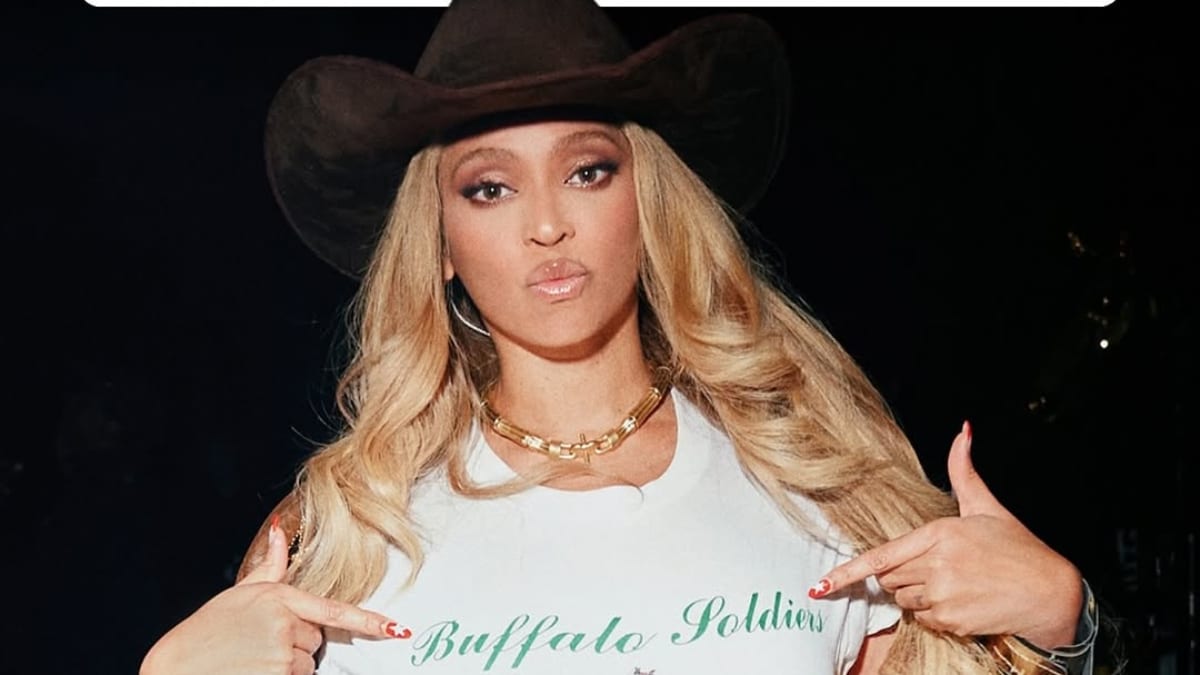

Beyoncé is facing backlash for wearing a T-shirt that some critics say promotes anti-Indigenous language. The shirt, worn during a Juneteenth performance in Paris as part of her "Cowboy Carter" tour, features imagery of the Buffalo Soldiers, Black U.S. Army units active in the late 1800s and early 1900s. The controversy stems from a description on the back of the shirt that refers to "warring Indians" as "enemies of peace, order and settlement".
The language on the shirt has drawn criticism from fans and Indigenous influencers, who argue that it villainizes Native Americans and Mexican revolutionaries by framing them as antagonists. Critics say that the shirt promotes a narrative that is insensitive to the history of American colonial expansion and Indigenous displacement. Several Native influencers, performers, and academics have taken to social media to voice their disapproval, with many calling for an apology or acknowledgement from Beyoncé.
The Buffalo Soldiers were established after the Civil War in 1866 and were comprised of formerly enslaved men, freemen, and Black Civil War soldiers. They participated in numerous conflicts, including battles against Indigenous peoples during the U.S. Army's campaign of violence and land theft during the country's westward expansion. Some historians suggest the "Buffalo Soldiers" moniker was given by Native American tribes who admired their bravery, but this is largely legend.
Alaina E. Roberts, a historian and professor at the University of Pittsburgh who studies the intersection of Black and Native American life, notes the complex role of the Buffalo Soldiers. While their story is a source of pride for many African Americans, their involvement in the violent displacement of Native peoples adds complexity to their legacy. Roberts suggests that Beyoncé may have been trying to claim agency over the role of Black Americans in the country's creation, but that the Buffalo Soldiers' involvement in the "genocide" of westward expansion complicates this.
Some critics argue that there is no "progressive" way to reclaim America's history of empire building in the West. Chisom Okorafor, a TikTok user, said that Beyoncé's use of Western symbolism sends a problematic message that Black people, too, can engage in American nationalism and profit from the atrocities of American empire.
As of June 29, 2025, Beyoncé or her team have not issued a public statement in response to the criticism. The controversy comes at a time when Beyoncé's "Cowboy Carter" project is being recognized for reclaiming the cowboy aesthetic for Black Americans. The album won Album of the Year at the 2025 Grammy Awards and aims to challenge country music's racial boundaries.